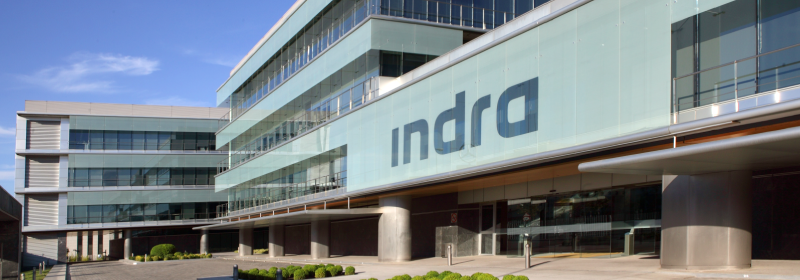- The company has renewed for another year its Quality Management System certifications in accordance with EN 9100/9110/9120 and PECAL 2110/2210/2310 for 14 work centers
- The company has also earned the prestigious NADCAP certification for the production of electronic modules
- Compliance with these standards, guaranteeing quality and reliability, is required by major clients, companies within the sector, the Spanish Ministry of Defence and other NATO nations

Indra has renewed its Quality Management Certifications in accordance with EN 9100/9110/9120 and PECAL 2110/2210/2310, the specific standards for the aerospace, defence and security sectors that guarantee the excellence of its solutions and services in these areas.
The EN 9000 family of standards certify that the company operates in accordance with the internationally agreed and recognized practices for aviation, space and defence organizations, as well as maintenance in the aviation industry. PECAL certifications required by NATO ensure quality in design, development and production.
Indra has passed the annual external evaluation to which it regularly submits its management and industrial processes, thus ensuring optimal levels of quality and reliability for the systems it develops for these sectors, improving its efficiency and gaining competitiveness, with the goal of offering the very best products and services to its customers.
These certifications are associated with 14 Indra work centers dotted across the country related to the Defence and Security business and they acknowledge the commitment to quality of the company’s management, the businesses, the production areas and the other corporate areas involved.
The renewal of these certifications forms part of Indra’s commitment to customer satisfaction and compliance with all the applicable legal and regulatory requirements. In fact, the main customers and companies in the sector require their suppliers to comply with these standards, as occurs with the Spanish Ministry of Defence, the various organizations of NATO countries and other international customers served by Indra around the world.
“Compliance with these requirements enables us to maintain a system that ensures a high level of quality in each project and operation we undertake at the company, to adapt better and to live up to the expectations of our customers”, explained Felix Torres, director of Quality Management System & Processes at Indra.
Indra is one of the eight national companies with the three specific certifications for the defence industry: PECAL 2110, PECAL 2210 and PECAL 2310. The EN 9000 family standards constitute the benchmark for quality management systems in the aerospace field and are based on the ISO 9001 standard, with the addition of sector-specific requirements.
As part of its ongoing commitment to quality, customer requirements and industry specifications, Indra has also obtained NADCAP certification to produce electronic modules in the equipment it makes at its Aranjuez plant. Only two companies in Spain currently hold this international certification, which guarantees that Indra complies with the highest global standards in electronics production as a top-level supplier in the aerospace and defence industry.
About Indra
Indra (www.indracompany.com) is one of the main global defence, aerospace and technology companies and a leader of the digital transformation and information technologies in Spain and Latin America through its Minsait subsidiary. Its business model is based on a comprehensive range of proprietary products with a significant innovative component, making it the technological partner for the digitization and key operations of its customers around the world. Sustainability forms part of its strategy and culture in order to overcome current-day and future social and environmental challenges. In the 2023 financial year, Indra achieved revenue totaling €4.343 billion, with more than 57,000 employees, a local presence in 46 countries and business operations in over 140 countries.